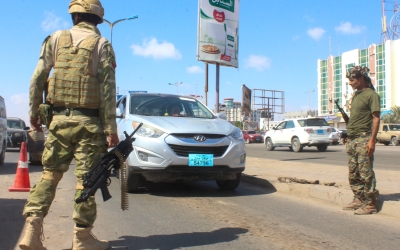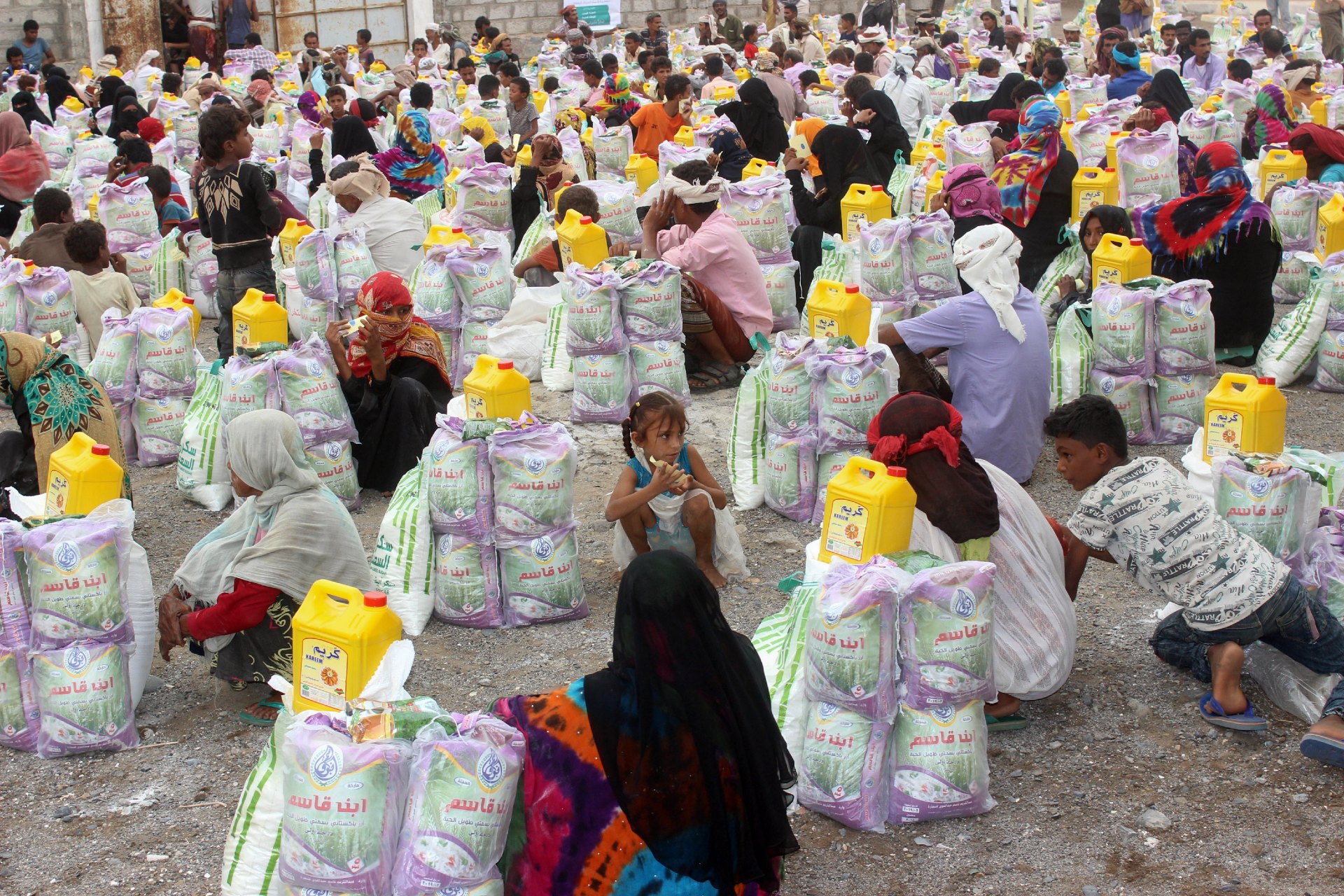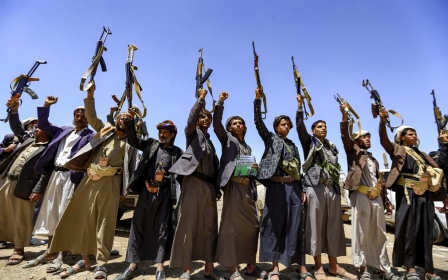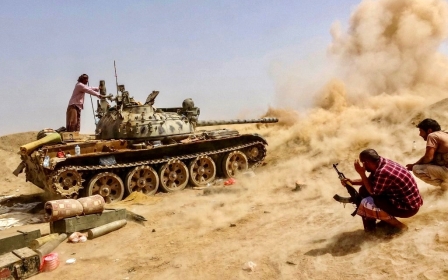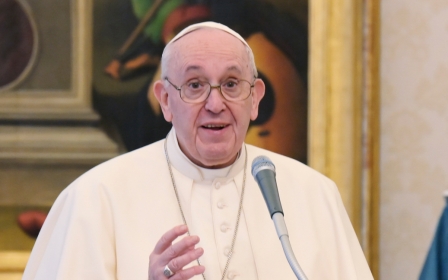Starving Yemenis fearful of Houthi terror designation's consequences
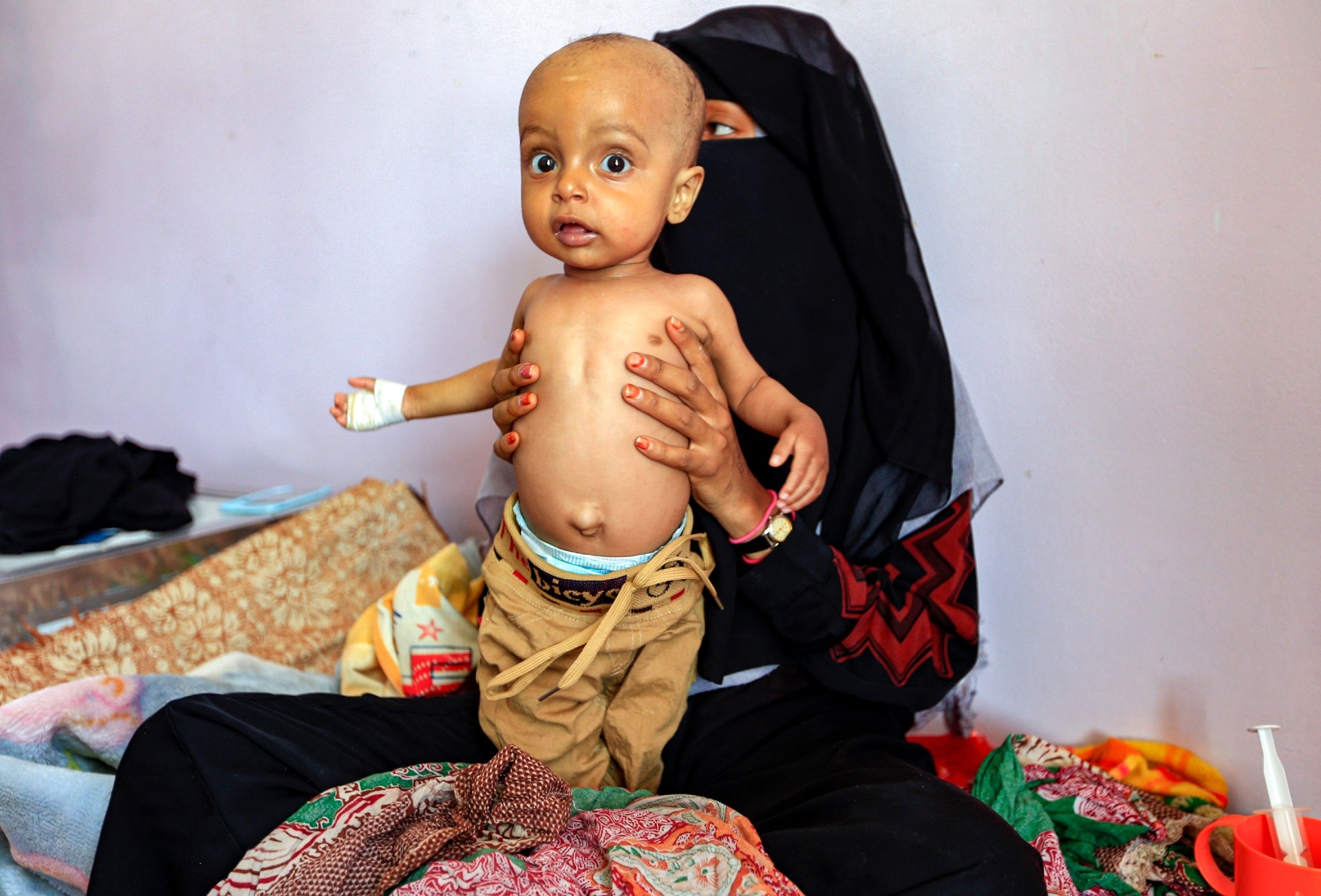
Like millions of Yemenis, Abdulmalik Mohammed lives under Houthi control and struggles to secure enough food to feed his family of six.
The 45-year-old is the only breadwinner and was displaced from his home in Hodiedah in 2017. He is totally dependent on humanitarian aid.
But now the United States has placed his only source of food in jeopardy. On Monday, outgoing US Secretary of State Mike Pompeo confirmed the news that was long feared by aid groups in Yemen: Washington was designating the Iran-aligned Houthi movement as a terrorist group.
It is a move NGOs working on the ground have warned could severely disrupt their ability to provide assistance in what the UN refers to as the world’s worst humanitarian crisis.
'Our life is going from bad to worse. Last year we witnessed a reduction of aid and today we hear about the designation of Ansar Allah and how we won’t get enough food aid'
- Abdulmalik Mohammed, displaced Yemeni
“I’ve been unemployed since 2017, so food aid and some items we receive from organisations help us to survive. If not for that, we would have died from hunger,” Mohammed told Middle East Eye.
“Although food aid has been reduced over the last year, we still receive food that helps us to stay alive and we can’t imagine our life without it.”
Pompeo pointed to an attack on Aden airport on 30 December - which killed 26 people and was blamed by the Saudi-backed government on the Houthis - as evidence of the movement’s maleficence.
"I also intend to designate three of Ansar Allah's leaders, Abdul Malik al-Houthi, Abd al-Khaliq Badr al-Din al-Houthi, and Abdullah Yahya al-Hakim, as specially designated global terrorists," he said, using the Houthis’ official name.
Mohammed said he heard about the designation in the media and from friends, and he is expecting his already nightmarish situation to get worse.
“Our life is going from bad to worse. Last year we witnessed a reduction of aid and today we hear about the designation of Ansar Allah and how we won’t get enough food aid,” he said.
“I heard that organisations may not work to help people in Ansar Allah areas after the designation, and if that’s true many people will starve to death and my family definitely won’t be safe from hunger after this designation.”
Around 24 million out of Yemen’s population of 30 million rely on some form of aid. Eighty percent of those are estimated to live in Houthi-held areas.
Blockades and conflict have ravaged the Middle East’s poorest country since a Saudi-led coalition intervened on the Yemeni government’s behalf in 2015. Occasional airport closures and threats to the port of Hodeidah have at times helped push the country to the brink of famine.
Mohammed worries the US designation will have the same effect.
“In 2016, Sanaa airport was closed as a way to besiege Ansar Allah, but in fact normal Yemenis were affected from that decision, and the same thing happened with Hodeida port, where I used to work before 2015,” he said.
Glee in Aden
The Yemeni government has pushed for years for its sworn enemy to be labelled as a terrorist organisation and responded with glee on Monday.
“The militia merit the designation not only for their concerted efforts in prolonging the conflict and producing the world's worst humanitarian catastrophe, but also for their actual concealed terrorist actions," the Foreign Ministry said in a statement.
"The Houthis are an emerging menace to both regional allies and international security and their presence also poses a threat to US interests and national security."
Like all teachers in Sanaa, Azzam Abdulmageed has received an irregular salary since 2016. Without aid, he wouldn’t be able to live, let alone continue teaching.
“The government don’t pay our salaries and we receive only one or two months’ wages a year. This makes us suffer, but we receive food from aid organisations and that reduced our distress,” he told MEE.
“We have been waiting to hear news that the government in Aden has released our salaries. Hearing it pushing for the designation of Ansar Allah was a disaster, and ignored any consequences on people like us.”
Though Yemen is split between two rival governments, the majority of public-sector workers receive their salaries from the Saudi-backed one in Aden. However, an economic crisis has severely disrupted public-sector salaries, leaving teachers such as Abdulmageed totally reliant on aid.
“I need the Aden-based government to answer this question: who is going to help us if we stop receiving aid because of the designation? Are you going to help us?” he asked.
“I know you only think about how to fight Ansar Allah, ignoring any consequences on us. I call on the United Nations to intervene and look at our suffering. We lost our salaries when the Aden-based government relocated the Central Bank to Aden and today we are losing aid because of the designation.”
Warnings of consequences
Pompeo’s announcement has gravely worried NGOs working on the ground.
“The US government must ensure that any sanctions do not block food, fuel and medicines from entering a country already in the middle of a full-blown humanitarian catastrophe,” said the Norwegian Refugee Council's country director for Yemen, Mohamed Abdi.
Mercy Corps, meanwhile, said it was “deeply concerned”.
“A designation of this nature will immediately handicap the ability of humanitarian organisations like Mercy Corps to provide life-saving assistance to the most vulnerable communities in northern Yemen, where three-quarters of the population lives,” said Tjada D’Oyen McKenna, Mercy Corps' CEO.
Predictably the designation was condemned by the Houthis themselves.
“The US is the source of terrorism, the Trump administration's policy is terrorist by its actions, policies that express a crisis of thinking, which is condemned,” Mohammad al-Houthi, a member of the Houthis’ Supreme Political Council, tweeted.
'The US government must ensure that any sanctions do not block food, fuel and medicines from entering a country already in the middle of a full-blown humanitarian catastrophe'
- Mohamed Abdi, Norwegian Refugee Council
"We reserve the right to respond to any classification that emanates from the Trump administration or any administration, and the Yemeni people do not care because the US is an actual partner in killing and starving them."
Ashraf Zain, a supporter of the Yemeni government in Aden, believes that the designation is too late and should have been done years ago.
“We know that the Houthi militias are terrorists and they bombed many homes and mosques in their areas. Moreover, they detained and killed many and their missiles target civilians everywhere. This means they are a terrorist organisation,” he told MEE.
“We are happy to hear today that the US will designate the Houthis and there will be political and economic restrictions on them.”
Zain doesn’t think that there will be direct restrictions on the aid groups helping Yemenis, but if issues do arise, he believes there will be a solution.
“The United Nations and the US can find a solution that enables aid agencies to continue helping Yemenis, as we don’t want our brothers to starve to death. But we wish to see the Houthi leaders under international siege,” he said.
In Sanaa, Mohammed is left waiting nervously to find out how his life and livelihood may be affected.
“I hope that what I heard isn’t true and we can continue to receive the regular aid from organisations like before, as there is no way to survive without it.”
Middle East Eye propose une couverture et une analyse indépendantes et incomparables du Moyen-Orient, de l’Afrique du Nord et d’autres régions du monde. Pour en savoir plus sur la reprise de ce contenu et les frais qui s’appliquent, veuillez remplir ce formulaire [en anglais]. Pour en savoir plus sur MEE, cliquez ici [en anglais].


